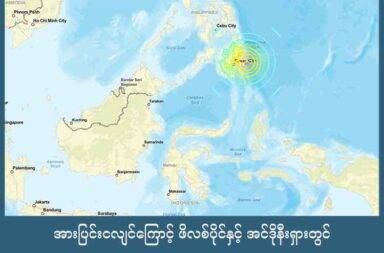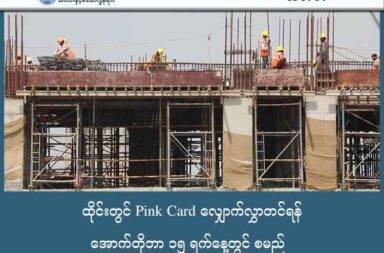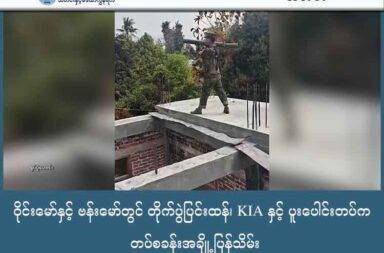Peace Process Must Be Re-Envisioned to Facilitate Genuine Change, Karen Groups Say
Burma’s peace negotiation framework must be amended in order to build a federal Union in the country, KPSN says.
By NETWORK MEDIA GROUP (NMG)
Friday, August 31, 2018
Burma’s peace negotiation framework must be amended in order to build a federal Union in the country, representatives from the Karen Peace Support Network (KPSN) said.
Speaking from the Thai-Burma border, KPSN’s Saw Lay Kapaw told NMG this was why the network had published “Burma’s Dead-End Peace Negotiation Process: A Case Study of the Land Sector” last month.
The report serves as an analysis of the peace process and the political dialogue framework by “using land management powers as a case study” and “tracing original demands and negotiations related to land” from Karen political dialogues last year until the second session of the government’s Union Peace Conference five months later.
“We have held many meetings—there are more obstacles mounted in these meetings,” he said, emphasizing how ethnic communities in Burma have faced difficulty in agreeing to the points put forward in the government’s Union Peace Conference. “Most of these points function under the 2008 Constitution,” Saw Lay Kapaw explained.
Burma’s current Constitution was drafted by the military and has been long criticized as being undemocratic and entrenching the army’s role in politics. Saw Lay Kapaw explained that KPSN recommends that stakeholders in the peace process draft a new political framework that goes beyond the 2008 Constitution and facilitates genuine dialogue.
“The government and the Tatmadaw [the Burmese military] have blocked meetings between respective ethnic armed organizations and the people in their areas. These ethnic armed organizations have tried to move the peace process forward and listen to the voices of their people,” Saw Lay Kapaw said.
The process has been marked by obstacles, he explained, beginning with meetings that were initially called to discuss land policy between Karen communities and armed groups. These gatherings were often reportedly barred from taking place by Burmese government officials; this also occurred in discussions of Karen State’s land policy.
“We proposed our land policy in the peace negotiations, but almost all of our principles were removed,” Saw Lay Kapaw said.
There are many differences between the basic principles surrounding land issues which were agreed in the Union Peace Conference and those agreed in the Karen national-level political dialogue, he added.
Further obstructing the peace process,are continued armed conflict between the Tatmadaw and ethnic armed organizations, he said.
“The Myanmar Army and the signatories of the NCA [Nationwide Ceasefire Agreement] often clash in ethnic areas, even after signing the NCA. Those things could bring about an end to the peace process,” Saw Lay Kapaw said.
In recent days, fighting between Karen National Liberation Army military wing of NCA-signed Karen National Union (KNU) and Burmese army broke out in KNU controlled area of 5th brigade.
In addition for calling on the military to end all offensives in the country, KPSN is also calling for a moratorium on mega-development projects and investment until a new democratic, federal Constitution is enacted in Burma.


